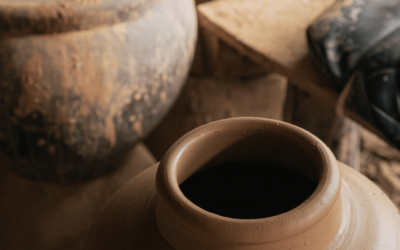1 Corinthians 3:6-9 (NKJV) – “I planted, Apollos watered, but God gave the increase. So then neither he who plants is anything, nor he who waters, but God who gives the increase. Now he who plants and he who waters are one, and each one will receive his own reward according to his own labor. For we are God’s fellow workers; you are God’s field, you are God’s building.”
Paul says, “I planted” – In other words, he is saying, “I did my part.”
Apollos Watered – Apollos did his part
But God gave the increase – Notice, the sentence starts with but. The purpose of the word ‘but’ is to introduce a statement or clause contrasting with what has been mentioned. What Paul is saying is that their efforts could not bring results. Even though they did their part, whatever they did could have been in vain if God did not bring the increase.
Therefore, in whatever you do, keep in mind that your effort is essential but profitable results don’t come from your efforts. Abundance comes from God. Keep in mind that it was possible for Paul and Apollos to plant and to water, but their efforts have resulted in a loss. There are farmers who follow all the ‘right’ procedures when farming, but their actions result in huge losses. Likewise, some business people put a lot of effort into their business only to result in losses.
When you see results in anything that you do, please do not take it for granted. Thank God for giving you those results. That is why the tithe is essential. It is a show of gratitude to God. 100% of your increase belongs to God, but since God is loving, just, and merciful, He only requests for 10% of what is already His.
Why then should you put effort?
Doing our part shows faith in God because faith without actions is dead (James 2:17). Secondly, God gave us various gifts and capabilities for a reason. “God cannot do what you can do for yourself because if He does that, it becomes a waste of the gift He gave you.” – Pastor Randy Skeete.
Notice in all of Jesus Miracles; He required the receiver of the miracle to do something.
- When Jesus healed the man at the pool of Bethesda who had an infirmity for 38 years, He told the man, “Arise, take up thy bed and walk” – John 5:8.
- When Jesus raised Lazarus (John 11:1-44), He told the people to roll the stone. If he had the power to raise the dead, He could move the stone as well. However, He did not do that. He needed them to display faith by doing what they could. After they expressed faith, He used divine power to raise Lazarus.
- In 1 Corinthians 3:6, Paul could plant, while Apollos could water. God could not do this for them. They had to do the planting and watering by themselves.
How is divine power necessary?
- In John 5, without the intervention of divine power, the man who had an infirmity for 38 years would not be healed.
- In John 11:1-44, without the intervention of divine power, Lazarus would not have risen. Without divine power, the people would have rolled the stone in vain.
- In Luke 8:40-48, without the intervention of divine power, the woman would not be healed. She would have touched the hem of Jesus’ garment in vain.
If we look at the world today, we can see that:
- Some people have great talent, and their abilities haven’t amounted to much because God gives the increase.
- Some people are so hardworking, but their hard work bears very little or no results because God gives the increase.
- Many students are brilliant, but they end up failing because it is God who gives the increase.
- Some people have a lot of knowledge but cannot do much with it because it is God who gives the increase.
Genesis 39:2-3 (KJV) – “And the Lord was with Joseph, and he was a prosperous man; and he was in the house of his master the Egyptian. And his master saw that the Lord was with him, and that the Lord made all that he did to prosper in his hand.”
It was the Lord who made Joseph prosper. Not Joseph’s efforts.
“To every man is given “his work” (Mark 13:34), the work for which his capabilities adapt him, the work which will result in greatest good to himself and to his fellow men, and in greatest honor to God.
Thus our business or calling is a part of God’s great plan, and, so long as it is conducted in accordance with His will, He Himself is responsible for the results “Laborers together with God” (1 Corinthians 3:9), our part is faithful compliance with His directions. Thus there is no place for anxious care. Diligence, fidelity, caretaking, thrift, and discretion are called for. Every faculty is to be exercised to its highest capacity. But the dependence will be, not on the successful outcome of our efforts, but on the promise of God. The Word that fed Israel in the desert, and sustained Elijah through the time of famine, has the same power today. “Be not therefore anxious (R.V.), saying, What shall we eat? or, What shall we drink? … Seek ye first the kingdom of God, and His righteousness; and all these things shall be added unto you.” Matthew 6:31-33.” —Education, Page 138, Paragraph 1 & 2, Ellen G. White.
May the Lord God intervene in your efforts as you do your best!





I was discussing some of this with my coaching group a couple of weeks ago. There are a lot of people in the world who have a lot of knowledge. They may know a lot about a certain subject, or they may know a lot about many subjects. However, there are some people who have a lot of knowledge but cannot do much with it. They may not be able to apply it to their life, or they may not be able to use it to help others. As you stated, the reason for this is that it is God who gives the increase. He is the one who gives us the ability to use our knowledge to help ourselves and others.
What a wonderful discussion to have. I have to remind myself daily to have a heart posture of surrender to God and to trust Him for the results. Also, being careful not to see this as an excuse to check out or be lazy. 🙂
Good to virtually meet you, Rachel! Looks like you’re doing some great things in your circle of influence. Love it! I see that you have a blog, I’m looking forward to reading some of your thoughts. I’ll be in touch. Be blessed.